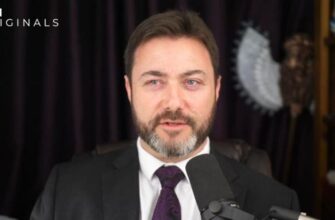The father of Major Sandeep Unnikrishnan, a National Security Guard commando who lost his life battling terrorists during the devastating 26/11 attacks in Mumbai, stated that Tahawwur Rana’s recent extradition to India represents more than just a diplomatic victory; it is also a measure of retribution for the public. Speaking via telephone, K Unnikrishnan acknowledged the event but emphasized that it doesn’t signify complete resolution and highlighted the necessity of bringing David Coleman Headley, another central figure in the 2008 attacks, to justice as well.
During the siege of the Taj Mahal hotel, Major Unnikrishnan, at just thirty-one years old, led a ten-member commando unit into the building under intense fire from terrorists entrenched within. Demonstrating remarkable courage and leadership, he not only orchestrated the evacuation of his injured teammates but also pursued the attackers on his own. He successfully cornered them in the hotel’s northern section before tragically falling in combat.
According to accounts from his fellow commandos, Major Unnikrishnan’s final words were a testament to his unwavering dedication: “Don’t come up, I will handle them.”
His extraordinary actions earned him the Ashok Chakra, India’s highest peacetime military honor. The citation lauded him for “most conspicuous bravery besides camaraderie and leadership of the highest order” and recognized his “supreme sacrifice for the nation.”
Sixteen years later, the elder Unnikrishnan’s words echo the valor displayed by his son.
“Sandeep is not a victim of 26/11. He was a security personnel who did his duty well in the face of certain death. He was sure that he would not come back. If he did not do this in Mumbai, he would have done it somewhere else. Our main concern should be to prevent such an attack so that we can minimise the damage these people intend to do.”
When asked if Rana’s extradition brought a sense of satisfaction, K Unnikrishnan responded affirmatively.
“Definitely it’s a success. For the general public, it’s not just a diplomatic success, it’s a revenge. We could get the culprit.”
Regarding whether this development would offer solace to the families of the 166 individuals who perished in the attacks, Mr. Unnikrishnan stated that it is insufficient.
- “It’s not a closure. We have to get Coleman Headley.”
- “These are all tools; they are working for money.”
- “The people worked at the behest of some agencies in our neighbourhood.”
- “But the brains behind it, we have not touched them yet, despite proving everything beyond doubt.”
He acknowledged the achievement as significant, albeit delayed, and expressed hope that all involved would be held accountable.
A special aircraft carrying Rana is expected to land in Delhi this afternoon. Officials from the National Investigation Agency (NIA) will then initiate questioning.
Mr. Unnikrishnan voiced his confidence in the NIA’s thorough investigation.
“This (Rana) is a learned man. NIA has all the information, they were just waiting for him. Let’s see what comes out of this.”
Tahawwur Rana was extradited after exhausting all legal challenges within the United States. The NIA alleges that he provided logistical, financial, and other support to David Headley, a key planner in the 26/11 terror attack. He faces charges including criminal conspiracy, waging war against India, murder, forgery, and violations of the Unlawful Activities (Prevention) Act.









